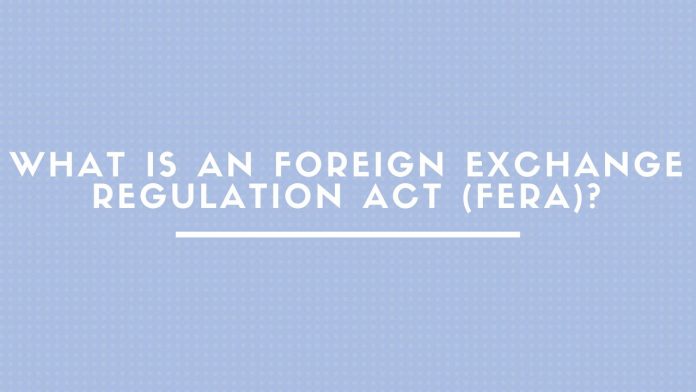Identification
The Foreign Exchange Regulation Act (FERA) passed 1973 by the Indian Parliament to regulate specific types of payments across foreign borders, as well as those transactions that might have an inadvertent effect the import and export of currency between nations.

History
Facing a trade deficit the Indian Parliament and the government of Indira Gandhi passed the Foreign Exchange Regulation Act in 1973. The goal of the legislation was to make India more fiscally conservative. In 2000, the government of Atal Bihari Vajpayee repealed the legislation and replaced it with the Foreign Exchange Management Act, which had much more liberal controls on foreign trade.

Function
FERA guidelines mandated the Reserve Bank of India (RBI) only allow dealers to guarantee debt in favor of an Indian resident on behalf of nonresident Indians (NRIs) or provide guarantees to foreign buyers of Indian exports. Companies in India had to offer guarantees to income tax officials for taxes due from foreign-national workers.

Indian companies had to obtain RBI approval to hire from overseas, and foreign companies operating in India could own only up to 40 percent of the equity in their businesses.
Significance
FERA is significant because it applied not only to Indian businesses, but to all citizens of India, those outside India and to branches and agencies of companies or corporate bodies registered or incorporated in India that were located outside India.

It is arguably the pivotal piece of legislation that led India to be one of the largest global economic powers to date.
Effects
A direct effect of this legislation was that it revealed companies such as IBM and Coca-Cola were making massive profits from their operations based in India, and they had to exit the country due to the new equity regulations.



















